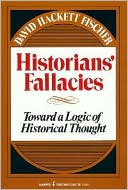In 2009, I wrote this:
The Big Picture (RSS) is a blog I enjoy having in my blog reader because it offers a broad, vivid perspective of God’s world.
The Big Picture is a photo blog for the Boston Globe/boston.com. Entries are posted every Monday, Wednesday and Friday by Alan Taylor. Inspired by publications like Life Magazine (of old), National Geographic, and online experiences like MSNBC.com’s Picture Stories galleries and Brian Storm’s MediaStorm, The Big Picture is intended to highlight high-quality, amazing imagery—with a focus on current events, lesser-known stories and, well, just about anything that comes across the wire that looks really interesting.
The Big Picture blog transferred to new hands last month. Three picture editors at the Boston Globe now run it.
Alan Taylor’s last post for The Big Picture was on January 21, 2011. But this month he began a similar photo blog for The Atlantic called In Focus (RSS). More info here.










